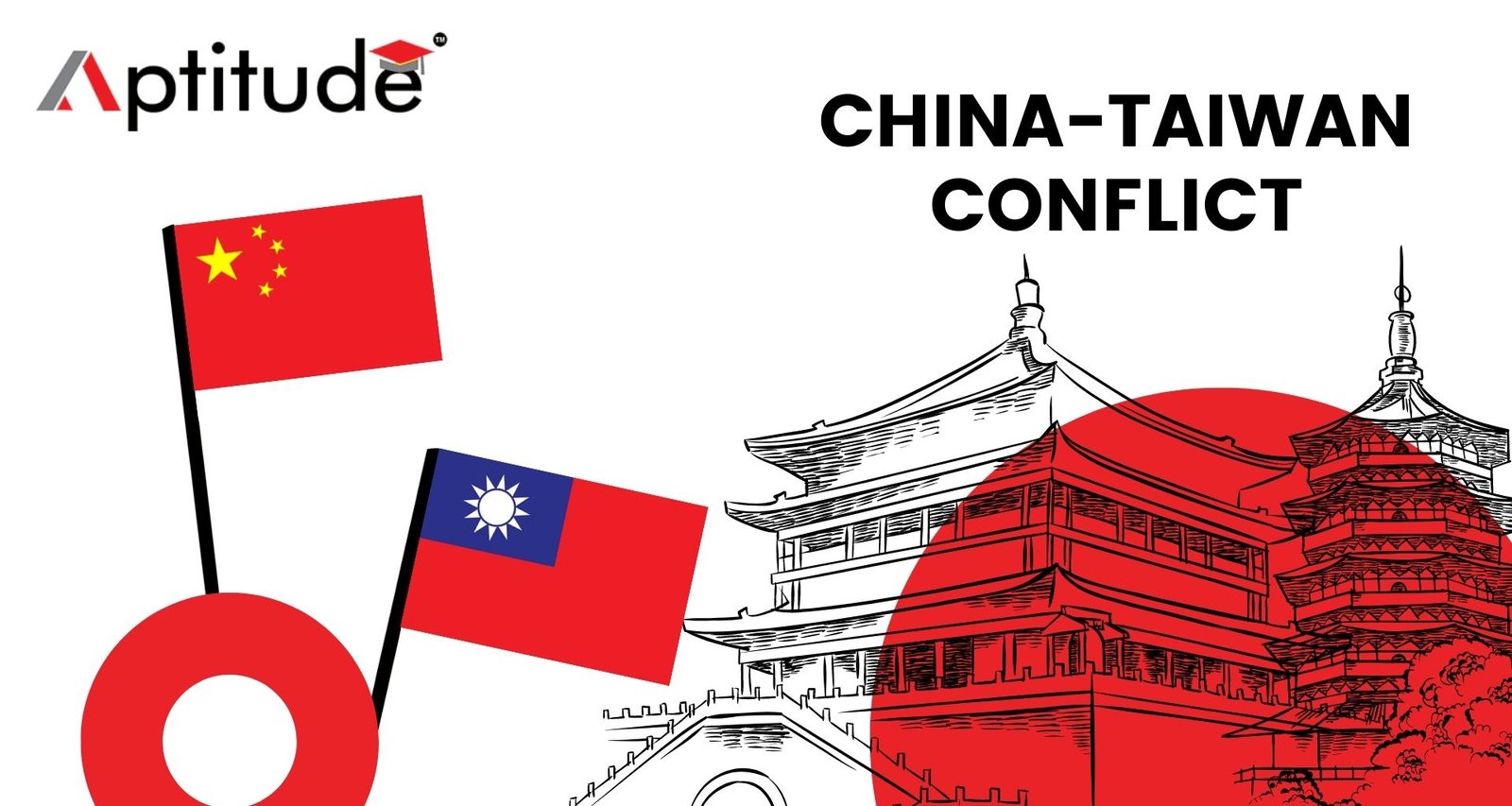
INTRODUCTION
China is the largest of all Asian countries and has the largest population in the world. China has 33 administrative units under a central government which consists of 22 provinces,5 autonomous regions,4 municipalities, and 2 special administrative regions.China‘s president is Xi Jinping. Taiwan is an island in the western Pacific Ocean and lies 100 miles off the coast of south-eastern China. Taiwan’s capital is Taipei City and its area is 36,197km². Tsai Ing Wen is the president of Taiwan and it has a population of 2.36 crores. The Republic of China has jurisdiction over 22 islands in the Taiwan group. China and Taiwan have many similarities in their language culture, politics, and lifestyle and they also differ in many ways. People living in China are known as Chinese and those living in Taiwan are known as Taiwanese.
HISTORIC BACKGROUND
The Republic of China was founded in 1912 and at that time Taiwan was under Japanese colonial rule. After Japan surrendered at the end of World War 2, the Republic of China government began exercising jurisdiction over Taiwan in 1945. In 1949 the ROC government relocated to Taiwan while they were fighting a war with the Chinese Communist Party. Since then, the ROC has continued to exercise effective jurisdiction over mainland of Taiwan and several outlying islands, leaving Taiwan and China each under the rule of different governments. Following the history, China suggests that Taiwan was a part of the Chinese province but the Taiwanese points to the same history and argue that they were never part of the modern Chinese state that was formed after the revolution in 1911.
RECOGNITION TO TAIWAN
Taiwan maintains full diplomatic relations with 14 sovereign states among which 13 are member states of the United Nations and the remaining sovereign state is Holy See which is a United Nations General Assembly observer state. As of April, 13 countries Haiti, Belize, Vatican city, the Marshall Islands, Honduras, Palau, Nauru, Saint Kitts, and Nevis, Paraguay, Saint Vincent and the Grenadines, Saint Lucia, Tuvalu, and Guatemala recognize Taiwan as an independent country. Nauru and Saint Lucia stopped recognizing Taiwan as an independent country between 2002 to 2007.
After the Chinese Civil war, the governments in China and Taiwan claimed to be the legitimate Chinese government. The nationalist government of Taiwan was considered the true government of China since it was the government before armies of the Chinese Communist Party chased out China’s ruling nationalist government, which later fled to Taiwan, off of the Chinese mainland in 1949. Taiwan was given China’s seat in United Nations. However, China’s Communist Party which continued to mainland ruling provided evidence that Taiwan was not the legitimate government of China and eventually the UN expelled Taiwan in 1971 and recognized the CCP/PRC as the official Chinese Government.
The Communists took control after winning in 1949. Chiang Kai-shek and nationalist party fled to Taiwan and ruled for the next several decades. China points out to the history and says that Taiwan was originally a Chinese province The nationalist government of Taiwan was considered the true government of China since it was the government before armies of the Chinese Communist Party chased out China’s ruling nationalist government, which later fled to Taiwan, off of the Chinese mainland in 1949. Taiwan was given China’s seat in United Nations. However, China’s Communist Party which continued to mainland ruling provided evidence that Taiwan was not the legitimate government of China and eventually the UN expelled Taiwan in 1971 and recognized the CCP/PRC as the official Chinese Government.
IMPACT ON GLOBAL ECONOMIES
The main concern is that Taiwan draws US and China into military conflict and it forces the rest of the world to choose sides. Such a conflict would disrupt the steady balance that has allowed Taiwan to come out as the base of advanced semiconductor production that helps to keep the digital economy humming and is critical for tomorrow’s superpowers. The experts predicted that any escalation in Taiwan Strait will have an impact on trade and security throughout the entire Indo-Pacific region. This could lead to western sanctions on China just like President Vladimir Putin and other Russian businesses. And this sanction could have a severe impact on the global economy. Experts also suggest that any steps to destabilize the Chinese economy will have serious implications. The Taiwan-China conflict caused distress in the global economy as the world is still recovering from the aftermath of the Ukraine-Russia crisis which resulted in inflation and commodity prices. China has been a crucial value-add to the global supply chain. Taiwan’s economy is important. Most of the world’s everyday electronic equipment from phones to laptops, watches and game consoles is made in Taiwan. The Taiwan Semiconductor Manufacturing Company TSMC has over half of the world’s market. TSMC makes chips designed by consumers and military customers. A Chinese takeover in Taiwan could give Beijing control over one of the most important industries of the world.
RECENT MILITARY ACTIVITIES BY CHINA
China fired a barrage of ballistic missiles into the waters around Taiwan as it set in motion large-scale military exercises in response to US House Speaker Nancy Pelosi‘s visit to the self-ruled island. Taiwan defense ministry stated that it detected 22 Chinese fighter jets crossing the Taiwan straits’ median line. Chinese state media said that the live-fire drills in six areas around Taiwan started and continued for some days. China’s ambassador to United Nations Zhang Jun told Al-Jazeera that the enhancement in military activity was a direct response to the visit of the US House speaker. Zhang Jun stated ” We hope that the United States will draw a lesson from such a situation, that they should honor their commitment on the ‘One-China Principle’, and not support any claim of independence. We hope that they will stop doing anything further by undermining China’s sovereignty and territorial integrity. The message is clear.”
ROLE OF THE US
United States does not have any diplomatic relations with Taiwan but has a strong unofficial relationship. They have deep commercial and economic links and share similar values, and strong people-to-people ties which form the base of their friendship and serve as it can help with the quick expansion of US engagement with Taiwan. Taiwan is also United States’ eighth largest trading partner and the United States is Taiwan’s second-largest trading partner. Taiwan and United States are members of several international organizations like the World Trade Organization, the Asian Development Bank, and the Asia-Pacific Economic Cooperation Forum.
The Speaker of the US Nancy Pelosi planned to visit Taiwan and this news created a stir in Asia and economic concerns across the globe. In August 2022, Pelosi said that the United States visit to Taiwan honors America’s commitment to supporting Taiwan. The Chinese foreign ministry criticized Pelosi’s visit and said it will seriously damage peace and stability in the Taiwan Strait and made it clear that the US should abandon any attempt to play the Taiwan card and abide by the one-China principle. And the ministry said that if the US insists on this way then all the consequences will be the US’s responsibility. There was close communication between China and US through different channels and China has repeatedly expressed its strong opposition to the potential visit of Pelosi to Taiwan. As a result, China initiated military operations around Taiwan, extending the schedule of war games. Before the tension could die, a five-member US congressional delegation led by Senator Ed Markey of Massachusetts arrived in Taiwan on an unannounced trip. This again sparked a large number of air and sea drills that raised the concerns of possible conflict. These recent tensions led to the murmur of a possible takeover of Taiwan by China. Experts suggest that there are only a very few chances of this conflict escalating into a full-blown military war.
STAND OF INDIA
New Delhi chose to maintain a studied silence amid the growing number of reactions to developments in the Taiwan straits and tension between the US and China. New Delhi seeks to avoid controversy as this is a very sensitive issue between the US and China. Also, India unlike other countries in the region has never really referenced the “One China” policy since 2010. Officials and experts said that New Delhi’s decision about the visit of US House Speaker Nancy Pelosi, followed by China’s reaction, missile tests, and military exercises is a carefully decided one as India doesn’t wish to create a controversy with China. “A loud silence is the best response ” a former official stated.
CURRENT SITUATION
After Ms. Pelosi’s visit, relations between Taiwan and China deteriorated sharply, which Beijing condemned as extremely dangerous. China focused on six danger zones around Taiwan and three of which overlap the island’s territorial waters. Taiwan said that the move which forced ships and planes to find a route around those areas violated its sovereignty and led to a blockade. These drills were supposed to end on the 7th of August but China continued large-scale military activities around Taiwan on 8 August. Thus, the tensions between China and Taiwan increased. Taiwan doesn’t have the capabilities to defend against a Chinese attack without external support. Even though Tsai and DPP have prioritized increasing defense but China’s spending is still estimated to be around twenty-two times Taiwan’s. China spends more than any country except the US on defense and has a huge range of Capabilities from missile technology to naval power, aircraft, and cyber-attacks. In an open conflict, Taiwan could focus on slowing down the Chinese attack. In 2021 China appeared to increase pressure by sending military aircraft into Taiwan’s air Defence zone which is a self-declared area where foreign aircraft are monitored, identified, and controlled in the interests of national security. Last year the number of aircraft reported peaked with 56 incursions in a single day.
Aptitude provides a wide range of quality study material for preparing SSC exams which will guide you like an accomplice for cracking SSC exams through our dedicated app “Aptitude Live App”. It covers General Knowledge Topics, Quiz, Current Affairs etc.

Don’t wait anymore. Aptitude study materials are also available in the form of textbooks with almost 1500 pages which cover all the syllabus for SSC exams. Start your online preparations today itself! Don’t procrastinate. Start today itself.
Follow our social media profiles to get more updates on Bank, SSC and Railway exam related topics: Instagram, Facebook and YouTube.
